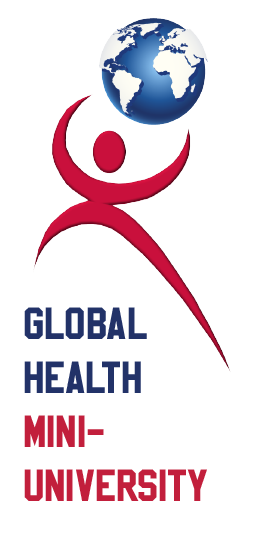HFG at Global Health Mini-U: HSS and Health Outcomes, Resilience, and More
Categories: Announcements
On Friday, March 4th, HFG joined global health partners at USAID’s fifteenth annual Global Health Mini-University (Mini-U) – a day-long learning forum for Global Health professionals and students, offering a variety of innovative sessions highlighting evidence-based best practices and state-of-the-art information. This year the HFG project had four sessions including two that were livestreamed. Learn more about the sessions and find resources below.
HFG Presentations at Mini-U 2016
 Governing Quality – The Secret Sauce to Successful Universal Health Coverage
Governing Quality – The Secret Sauce to Successful Universal Health Coverage
Kelley Laird (HFG), Altea Cico (HFG), Amanda Ottosson (ASSIST), Ruben Frescas (WHO), Lopa Basu (WHO)
- Health Outcomes: What Does the Evidence Tell us about the Impact of Health Systems Strengthening?
Laurel Hatt (HFG), Ben Johns (HFG), Joe Naimoli (USAID) | *Livestream option*
- Preparing for Future Shocks: Building Resilient Health Systems
Kate Greene (HFG), Bob Emrey (USAID), Jodi Charles (USAID), Temitayo Ifafore (USAID)
- Looking at UHC through the Lens of Essential Packages of Health Services
Laurel Hatt (HFG), Jeanna Holtz (HFG), Rashad Massoud (ASSIST), Caroline Ly (USAID) | *Livestream option*
Session Descriptions and Related Resources
Governing Quality – The Secret Sauce to Successful Universal Health Coverage
Kelley Laird (HFG), Altea Cico (HFG), Amanda Ottosson (ASSIST), Ruben Frescas (WHO), Lopa Basu (WHO)
In a recent survey of over 100 government officials, the need to improve the quality of health care emerged as their number one priority. With the new SDGs and the growing attention to achieve Universal Health Coverage, the international community has renewed focus on ensuring quality services are not only accessible, but also delivered consistently. USAID’s HFG Project together with the Joint Learning Network, the USAID Applying Science to Strengthen and Improve Systems (ASSIST) Project, the World Health Organization (WHO) and others have developed a guide outlining success factors in structuring institutional roles, responsibilities, and relationships that improve governing for quality care, including levers that can be used by leaders to improve quality.
Highlighted Resource: The Governance of Quality: Defining Experiences and Success Factors in Institutional Roles and Relationships
Health Outcomes: What Does the Evidence Tell us about the Impact of Health Systems Strengthening?
Laurel Hatt (HFG), Ben Johns (HFG), Joe Naimoli (USAID/GH/OHS)
USAID’s Office of Health Systems and the HFG Project recently launched the Impact of Health Systems Strengthening on Health report, which for the first time presents a significant body of peer-reviewed evidence linking health systems strengthening interventions to measurable impacts on health outcomes. The report identifies 13 types of health systems strengthening interventions with quantifiable effects. It shares evidence on how to strengthen health system performance to achieve sustainable health improvements at scale, particularly toward EPCMD, an AFG, and protecting communities against infectious diseases. Interventions were found to be associated with reductions in mortality and morbidity for a range of conditions, including diarrhea, malnutrition, low birth weight, and diabetes. HSS interventions are also associated with improvements in service utilization, financial protection, and quality service provision.
Highlighted Resources: Report + Synopsis: Impact of Health Systems Strengthening on Health
Preparing for Future Shocks: Building Resilient Health Systems
Kate Greene (HFG), Bob Emrey (USAID/GH/OHS), Jodi Charles (USAID/GH/OHS), Temitayo Ifafore, (USAID/GH/OHS)
After the recent Ebola outbreak, global health experts have turned to resilience frameworks used by other fields such as agriculture and engineering to understand how to build health systems that can withstand shocks, including infectious disease outbreaks, natural disasters, and political conflict. Speakers will first briefly outline each of the five key elements of the Resilience Framework, adapted from the Rockefeller Foundation and presented in a Lancet article in 2015, that can be applied to health systems. Participants will then work in small groups to discuss which health systems interventions should be pursued in response to a one-page description of an unnamed country. Speakers will then reveal what real-world interventions they designed for the country example and answer questions.
Highlighted Resource: Lancet Article: What is a resilient health system? Lessons from Ebola
Looking at UHC through the Lens of Essential Packages of Health Services
Laurel Hatt (HFG), Jeanna Holtz (HFG), Rashad Massoud (ASSIST), Caroline Ly (USAID/GH/OHS)
Join us as we take a look at USAID’s work to ensure equal access to essential packages of health services (EPHS) for all without financial hardship. Learn how partner countries are operationalizing EPHS to promote priority service provision as countries move towards Universal Health Coverage (UHC); how national and social health insurance schemes are improving financial protection and expanding coverage, especially for the poor and informal sector; and the importance of integrating quality improvement to ensure that services provided improve the health of those receiving services and overall health outcomes of the population. USAID’s Office of Health Systems will contextualize the Agency’s vision and support for UHC as part of its new Vision for Health Systems Strengthening.
Highlighted Resources: EPHS Country Snapshots: Essential Packages of Health Services in 24 EPCMD Priority Countries: Country Snapshots Series



